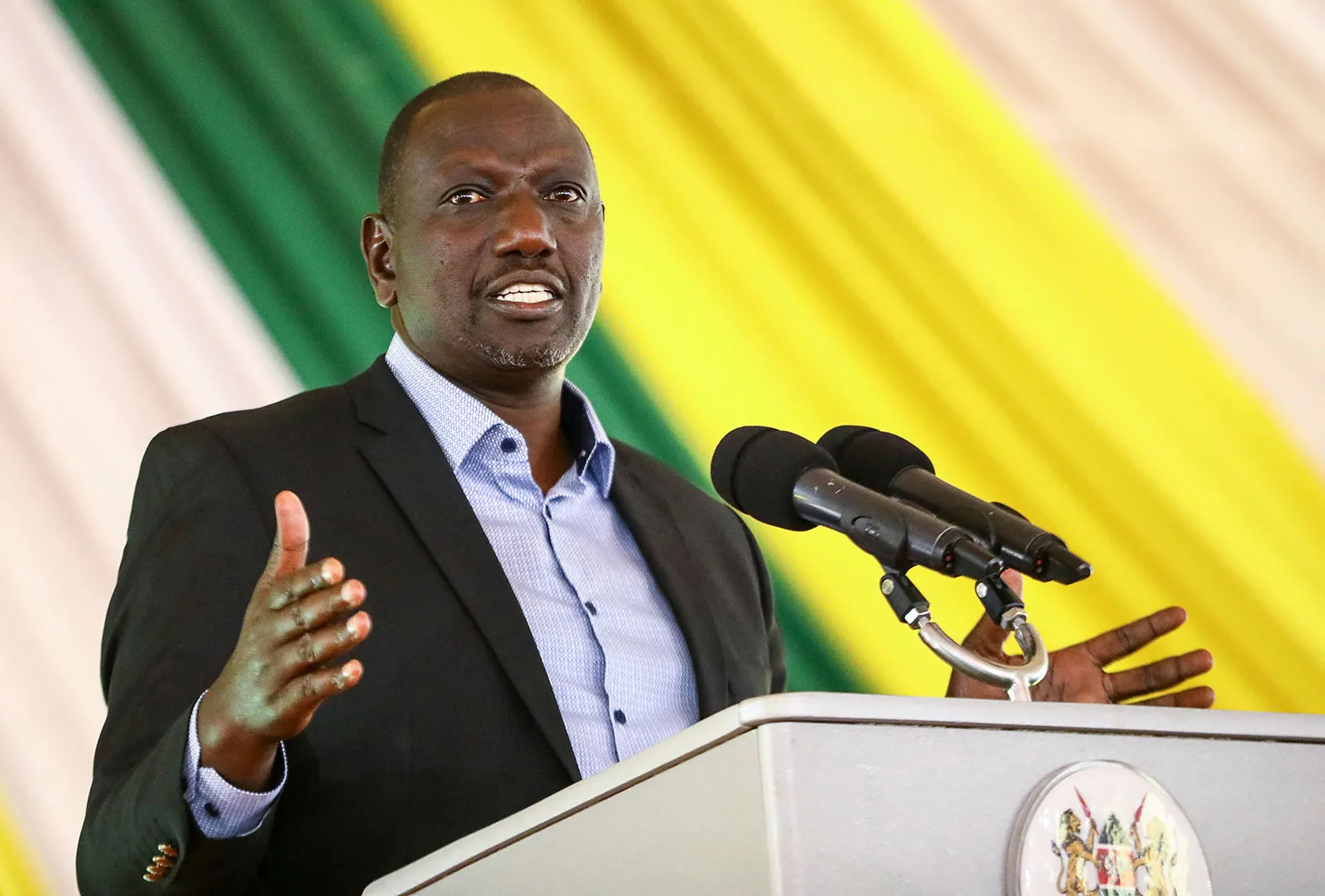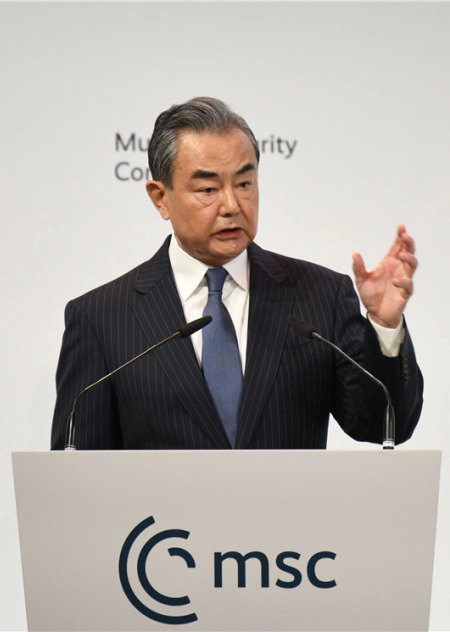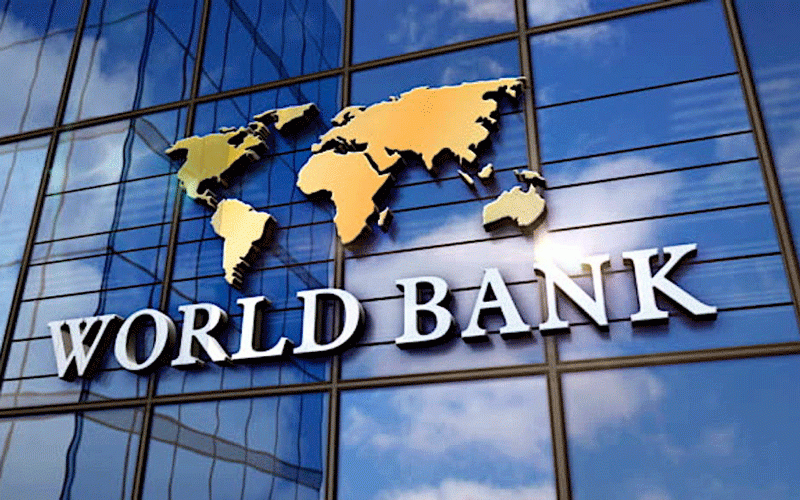
KENYA hosted the Africa Climate Summit, which concluded with leaders urging the international community to take immediate action to cut greenhouse gas emissions, uphold its obligations, and meet its financial commitments to combating climate change.
Kenyan President William Ruto said the agreement made at the conference indicates the seriousness of African states to assist address the climate change challenge on behalf of the other African heads of state present at the summit.
The summit "shows the unwavering collective commitment of the people of Africa to their vision to make this continent the first home of humanity, a land of abundant potential, limitless opportunity, and the possibility of shared prosperity," he said.
It also demonstrates our will to organise a worldwide alliance of first responders to make sure that the industrialisation required to fuel future economic change restores the health and ecological balance of our planet.
The summit, which took place from Monday to Wednesday, focused on green growth in Africa and finding finance solutions to assist programmes aimed at minimising the effects of climate change, which affects an estimated 1,3 billion people on the continent.
At the Summit, a delegation led by Professor Benedict Oramah, President of Afreximbank, participated in high-level discussions on climate finance and several initiatives to assist African states in developing future-proof, green industries that can speed up economic development, while preserving the ecological and climate security of the continent and the entire world.
"The problem hasn't been the deficit of ideas, but the lack of action on the part of almost all stakeholders," President Oramah said in his opening remarks for the Head of State Panel on the theme "New Climate Finance Architecture."
We must urge big economies to keep their promises to underdeveloped countries about climate finance, he said. Africa is putting forward realistic suggestions to mobilise global resources to address the issues of climate change in the absence of strong global action.
- Village Rhapsody: How Zimbabwe can improve governance
- Village Rhapsody: Engage men to end gender-based violence
- Village Rhapsody: How Zimbabwe can improve governance
- Zim maize output to drops by 43%
Keep Reading
Climate adaptation is the main emphasis of the Bank's commitment to combating climate change, which it is advocating during the summit.
Afreximbank is working to coordinate and support initiatives that raise money for climate-related projects, maximise nature-based solutions on the continent, promote food security and sustainable water supply in Africa, and invest in enhancing systems that manage and contain disasters when they happen.
The bank has taken specific ideas and actions, such as working with Africa Risk Capacity (ARC) to develop a product that safeguards African economies against food security issues brought on by climate-related calamities.
While ARC offers the insurance capacity, Afreximbank finances the premiums and handles the financing for food imports. Oramah stated that this product is severely underfunded with funds at just US$1 billion and that there is room for the World Bank and capital-rich economies to step in by contributing capital to this fund.
Second, a worldwide carbon tax, which several nations have backed, might also turn out to be a significant source of funding for the climate insurance programme.
Afreximbank is also doing more to assist its member states in managing the already unstable climate situation. It is mobilising support for the development of African natural gas and energy reserves, which can in turn speed up the realisation of Africa's potential for renewable energy, through investments in the continent's infrastructure to lay the groundwork for a low-carbon transition, as well as advocacy for Africa's particular energy needs.
Oramah made the following comments regarding the bank's attendance at the Africa Climate Summit:“I am pleased that Afreximbank’s significant influence and expertise will contribute to the essential discussions taking place at the Africa Climate Summit here in Nairobi this week.
“Afreximbank has made real and vital contributions to this continent’s climate resilience, as well as the ability of its economies to establish the groundwork for sustainable and inclusive growth.
“From financing solar power plants to helping devise Africa’s entry into global carbon markets and supporting the establishment of an African Energy Bank to guarantee continental energy security and sustainability, Afreximbank has played a pivotal role in Africa’s ongoing efforts to protect itself from existing climate challenges and prevent the occurrence of new ones.
“Afreximbank will continue to represent the interests and concerns of its African member states in this most vital of contemporary discussions,” he added.
Wednesday marked the conclusion of the historic Africa Climate Summit in Nairobi, Kenya, with the adoption of a united "Nairobi declaration" by the summit's participants to emphasise the continent's potential as a green powerhouse and persuade other world leaders to embrace new global carbon prices.
The declaration, backed by the leaders of the continent's 1,3 billion people — a population that is expected to treble by 2050 — will serve as the foundation for Africa's bargaining position at the COP28 meeting in November.
"Decarbonising the global economy is also an opportunity to contribute to equality and shared prosperity," the report stated.
According to the final document, "this declaration will serve as the foundation for Africa's common position in the global climate change process."
"No nation should ever be forced to choose between development goals and addressing climate change."
The declaration, agreed upon unanimously by leaders at the three-day summit, calls on the world's biggest greenhouse gas emitters and richest countries to keep their promises — noting in particular a 14-year-old pledge of US$100 billion in annual climate finance to developing nations — and for today's world leaders to rally behind a global carbon tax on fossil fuels, aviation, and maritime transport.
According to the International Monetary Fund (IMF), about two dozen countries worldwide presently levy carbon taxes, but the idea of a global carbon tax regime has never gained support.
Furthermore, African countries claim that they are compelled to pay borrowing costs that are five to eight times higher than those of wealthier countries, resulting in recurring financial crises and prohibiting them from spending more on climate change mitigation.
As a result, the proclamation urges for the continent's immense natural wealth to be extracted and processed in Africa, as well as reforming a global financial system that requires African states to pay more to borrow money.
Furthermore, African countries claim that they are compelled to pay borrowing costs that are five to eight times higher than those of wealthier countries, resulting in recurring financial crises and prohibiting them from spending more on climate change mitigation. As a result, the proclamation urges for the continent's immense natural wealth to be extracted and processed in Africa, as well as reforming a global financial system that requires African states to pay more to borrow money.
Africa Climate Week (ACW) is an annual gathering of leaders from governments, industries, international organisations, and civil society to discuss methods to cut greenhouse gas emissions, while adapting to the growing consequences of the climate issue. This year's ACW 2023 was held from September 4 to 8 in Nairobi, Kenya, and was hosted by the Government of Kenya.
- Denhere is an investigative journalist based in Zimbabwe. — +263773894975.











